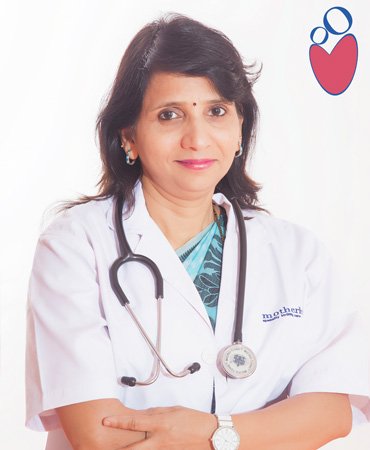
Why PCOS is on the rise among Indian women

There is a general lack of awareness regarding the condition and it often remains undetected for years.
One in every 10 women in India has polycystic ovary syndrome (PCOS), a common endocrinal system disorder among women of reproductive age, according to a study by PCOS Society. And out of every 10 women diagnosed with PCOS, six are teenage girls.
PCOS was described as early as 1935. However, even today there is a general lack of awareness regarding the condition in India and it often remains undetected for years. This health condition is estimated to affect about 10 million women globally.
A study conducted by the department of endocrinology and metabolism, AIIMS, shows that about 20-25 per cent of Indian women of childbearing age are suffering from PCOS. While 60 per cent of women with PCOS are obese, 35-50 per cent have a fatty liver. About 70 per cent have insulin resistance, 60-70 per cent have high level of androgen and 40-60 per cent have glucose intolerance.
In studies conducted in South India and Maharashtra, prevalence of PCOS was reported as 9.13 per cent and 22.5 per cent, respectively.
Many aspects of the disorder are not understood properly as its symptoms and severity vary greatly. Women with PCOS are often found to have higher than normal insulin levels. Insulin is a hormone that??s produced in the pancreas. It helps the body cells turn sugar (glucose) into energy.
If you don't produce enough insulin, your blood sugar levels can rise. This can also happen if you're insulin resistant, meaning you aren't able to use the insulin you do produce effectively. If you're insulin resistant, your body may try to pump out high levels of insulin in an effort to keep your blood sugar levels normal.
Too-high levels of insulin can cause your ovaries to produce more androgens, such as testosterone. Insulin resistance may also be caused by having a body mass index above the normal range. Insulin resistance can make it harder to lose weight, which is why women with PCOS often struggle with this issue.
The incidence of PCOS among women and teenage girls has risen to such an extent that the Indian Council of Medical Research (ICMR) has taken up a nationwide survey. The reason it is dangerous is that if this condition is left unchecked or undiagnosed, it can lead to infertility among other long-term health concerns.
Early diagnosis and treatment is key to help prevent health problems. At Motherhood Hospitals alone, we have seen 4-5 cases of teenage girls suffering from PCOS, which is significantly high compared to 10 years ago. This is mostly due to unhealthy lifestyles, unhealthy diets and lack of exercise.
Spectrum of symptoms
Girls and women suffering from PCOS exhibit a range of symptoms such as weight gain, fatigue, unwanted hair growth, thinning hair, infertility, acne, pelvic pain, headaches, sleep problems and mood changes. Most symptoms begin shortly after puberty and they can also develop during late teens and into early adulthood.
Girls with PCOS typically have irregular periods or amenorrhea, and heavy or scanty bleeding during menses. Doctors also look for elevated levels of the male hormone androgen (testosterone) and polycystic ovaries.
With PCOS, women can develop cysts due to ovaries not being released on time. The follicles keep growing and form multiple cysts, which appear like a string of pearls. Women are likely to develop PCOS if their mother or sister also has the condition.
Not just that, women with PCOS have a higher risk of developing other health complications such as hypertension, high cholesterol, anxiety and depression, sleep apnea, heart attack, diabetes and endometrial, ovarian and breast cancer. Women who have PCOS have a higher rate of miscarriage, gestational diabetes, and premature delivery.
Recommended treatment
Unfortunately, PCOS cannot be cured. It can, however, be managed to a large extent by controlling symptoms. Exercise and a healthy diet are the best bet for women with PCOS as this will help to regulate their menstrual cycle and lower blood glucose levels.
High-fibre foods can help combat insulin resistance by slowing down digestion and reducing the impact of sugar on the blood. This may be beneficial to women with PCOS. Great options for high-fibre foods include broccoli, cauliflower and sprouts, red leaf lettuce, green and red peppers, beans and lentils, tomatoes, spinach, almonds and walnuts, olive oil, fruits, such as blueberries and strawberries, and fatty fish high in omega-3 fatty acids, such as salmon.
Lean protein sources like tofu, chicken and fish don't provide fibre but are filling and a healthy dietary option for women with PCOS.
Instead of three big meals they should have five small meals, which helps metabolise food and in maintaining weight.
If women with PCOS are suffering from infertility, then fertility drugs may be administered to aid ovulation. On the other hand, if a woman does not want to get pregnant, then birth control pills may be prescribed.
In order to stop excess hair growth and help reduce acne, using anti-androgens is the recommended course of action. While many women have been recommended to regularly exercise, (minimum 45 minutes a day, five times a week) one refrain that we commonly hear is that they don't have time.
Up to 5-10 per cent of weight loss will help improve the symptoms, hormonal balance and regularisation of menstrual cycle. PCOS among women, especially adolescents, is an urgent public health problem that needs careful assessment, timely intervention and appropriate treatment.
Promotion of healthy lifestyles, the need for regular exercise and increased awareness programmes on PCOS is the need of the hour to enable a holistic solution to this problem.

Authored By :Dr SUNITHA P SHEKOKAR
Press Coverage:http://bit.ly/2ok4dU7
Related Blogs

Understanding Gestational Diabetes: Insights from Dr Shruthi Kalagara
Read More
Urinary Tract Infection (UTI) in Pregnancy
Read More
Early Pregnancy Care for New Pregnant Women: Expert Advice | Motherhood Hospitals
Read More
Body Positivity Tips Post C Section (Cesarean Delivery)
Read More
Vaginoplasty: Procedure, Cost, Risks & Benefits, Recovery
Read More
The Digital Dilemma: Exploring the Medical Implications of Technology on Child Development
Read More
How To Relieve Menstrual Cramps? - 8 Simple Tips
Read More
Benefits of Consuming Folic Acid Tablets For Pregnancy/During Pregnancy
Read More
Navigating Radiology: Ensuring Safe Imaging During Pregnancy
Read More
Navigating Radiological Tests During Pregnancy: Ensuring Safety for Mother and Child
Read MoreRequest A Call Back
Leave a Comment:
View Comments
Previous
Next
HELLO,
Stay update don our latest packages, offer, news, new launches, and more. Enter your email to subscribe to our news letter


 Toll Free Number
Toll Free Number








No comment yet, add your voice below!